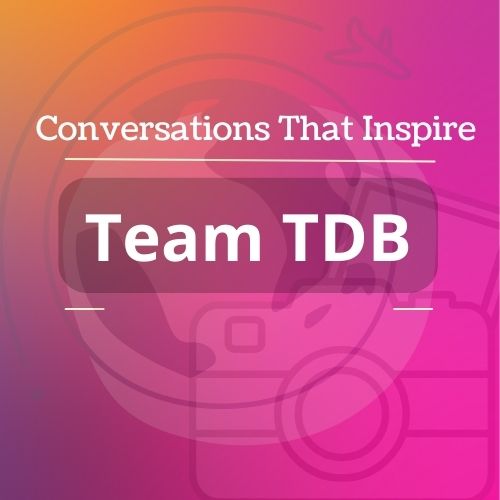Article by Malini Agarwal – Founder and Creative Director MissMalini Entertainment
Founder Malini’s Girl Tribe and #IgnoreNomoreCampaign
In the seemingly unending fight for equality, people sometimes tend to forget that the patriarchy and its resultant belief systems are toxic for men as well and not just women. Boys are consistently fed statements like:
Boys don’t cry
Be a man
Boys don’t wear pink
Boys don’t play with dolls
And the ever-so-toxic,
Boys will be boys
And then the world is surprised when these same boys grow up with problematic tendencies way into their adulthood. So, this International Men’s Day let’s examine what this does to boys who grow up into men and what needs to be done to correct it at the start, so that every boy has the chance to break out of the gender roles that toxic masculinity assigns and moves towards positive masculinity that will in turn help build an equitable world.
What is toxic masculinity and what does it do to boys?
Toxic Masculinity is a term that explains how many cultural beliefs and behaviours stick to gender stereotypes and fixed gender roles and thereby disallow young boys from experiencing and expressing emotions or themselves in an open and honest way. Because of this boys grow up with the false perception that they need to be macho and have no room for anything else.
The language one uses matters because when you say things like those stated above, it tends to communicate to young minds that they need to repress their emotions and uses shame as a motivator, which in turn leads to using aggression to communicate and the normalizing of problematic behavior.
If people start teaching boys to be accountable for their actions instead of condoning bad behavior under the umbrella of boys being boys, then we can make movements towards positive masculinity. What society and parents need to do first and foremost is recognise the deeply ingrained biases and cultural beliefs that everyone has grown up with and recognise and admit that therein lays the base of the problem. Once, acknowledged, it becomes easier to catch themselves perpetuating any particular gender stereotype and question how it can be done differently.
What does positive masculinity look like?
Instead of coming off as emotionally repressed individuals that have a problem forming connections, caring and communication, a male displaying positive masculinity will be willing and able to do all these things because he has understood that it is human to display emotion and that softness does not necessarily equate to weakness.
When men and women both are able to deconstruct what it means to “be a man” and not equate it to running away from the expression of feelings and emotions, it automatically results in a man who is comfortable with himself and does not have any kind of emotional vaccum to fill with aggression or power displays.
Positive masculinity looks like men being accountable for their actions, owning their mistakes and holding other men accountable as well. It’s not just one or the other. By being able to introspect, a man might identify issues with his own behavior and be able to correct it, and taking that one step further, he also wouldn’t then shy away from calling out another man, whether friend, family or otherwise on their problematic behavior as well.
All of this comes from the openness to learning and understanding about the other side’s experience by listening to them about their experiences with toxic behaviors and the resultant effects whilst resisting the urge to mansplain issues that they have no direct experience in. But also, as much as it is about learning, it is equally about unlearning certain things that everyone has been brought up to believe because these patriarchal misogynistic values are so pervasive and ingrained in everyone.
Possibly the biggest indicator of positive masculinity is when men can accept all people who identify as male and understand that gender is spectrum and just because someone doesn’t conform to your ideal of what masculinity is or what being male is, doesn’t make them any less male themselves. A man can cry, wear pink, throw a ball however they want to and still be male.
Just as we have reached a state in 2020 where we are starting to teach girls that they can be whatever they want to be, we must ensure that we give boys the same freedom to feel freely, express openly and not be afraid to always challenge existing gender norms.
Author
Malini Agarwal (Founder & Creative Director)

Malini Agarwal a.k.a MissMalini is the Founder & Creative Director of MissMalini Entertainment, a leading media lifestyle brand that creates highly engaging, multi-platform content geared towards India’s Internet Generation.
Malini is India’s first and most famous Digital Influencer, having pioneered Indian lifestyle blogging with her website MissMalini.com in 2008. Today MissMalini Entertainment content reaches 30 million people a month every across their owned channels, with over 10 million direct social media followers. A regular speaker at CMO forums on digital brand building, Malini was featured in the ET Women Ahead Listing of 2018 by The Economic Times and awarded the Women Super Achiever Award at Femina’s 5th World Women Leadership Congress & Awards. Ranked #1 on IMPACT’s 50 Most Influential Women in Media, Marketing and Advertising 2017, she was also recognized among business leaders to watch in Fortune India’s 40 Under 40 List as well as GQ’s 50 Most Influential Young Indians List and World Marketing Congress’s 50 Most Influential Digital Marketing Leaders Listing in 2017. She was also featured as one of the Top 10 Young Business Women of 2016 by CNBC-TV18 at the Young Turks Summit, and declared as the #1 Digital Influencer in the world on SERMO’s Digital Influencer Index 2016. Malini is a regular industry panelist and moderator, she was the keynote speaker at the Babson College Indian Symposium, and at Ficci Flow chapters of Amritsar, Jaipur, Kolkata, and Ahmedabad.
Within a few years of blogging, The Huffington Post and Forbes named Malini as India’s most famous Digital Influencer, and since then Malini has been profiled by various international media outlets including BBC World (UK), Reuters, CNN (USA), DW (Germany), TV5 (France) and The Globe & Mail (Canada), and is a regular fixture in local publications such as Vogue India, Elle India, Grazia India, Hello! India, India Today, The Economic Times, Business Standard, NDTV Profit, and on CNBC’s Young Turks as a fast-growing media start-up to watch.
Expanding on her digital leadership, Malini made her first foray into television in 2014 with the self-produced reality entertainment TV series, MissMalini’s World on TLC. She went on to also host Kya Seen Hai @MissMalini on ZOOM, one of India’s leading Bollywood & Entertainment TV channels and then two season on Vh1 with her show Inside Access with MissMalini.
Malini released her first book, To the Moon: How I Blogged My Way To Bollywood with reputed publishing house HarperCollins in January 2018, which peaked at #3 Non-Fiction (and #8 overall) on the India Top 10 Bestseller List.
Malini’s passion and efforts are now spent using her reach and influencer to launch social initiatives that facilitate cultural change. Most prominent of these is her invite-only & Facebook group exclusively for women called ‘Malini’s Girl Tribe’, a supportive community of 25,000 women, as well as her Positive Masculinity community, a co-ed group for all to discuss the way towards a more socially progressive and world. By creating safe spaces for women, a myriad of topics and modern issues are discussed openly every day. Women are able to support each other, help each other, and have meaningful connections every day. The Girl Tribe also gave rise to a web-series featuring such distinguished guests as Rega Jha, Adhuna Bhabani, Mallika Dua, Sonali Bendre Behl, Anjali Lama, Trisha Shetty, and Dia Mirza, covering topics ranging from oppressive beauty standards and gender expectations to raising compassionate children, fighting sexual abuse, and more.
On July 18th, 2018, Malini launched #ItEndsWithMe, a campaign to raise everyone’s social consciousness, engagement, and commitment to fight against the pervasiveness of sexism, violence, and discrimination in our world. With continuous multimedia and multilingual pledges to take a stand coming from numerous individuals, celebs, and brands, the campaign has sparked a longer-term movement for change.
Malini’s 20 year career in media & entertainment includes stints as a vertical head at MTV, a popular RJ and Programming Director at Radio One, and as the Head of Digital Content for Channel [v].
For further information, please contact: missmalini.toc@gmail.com




















